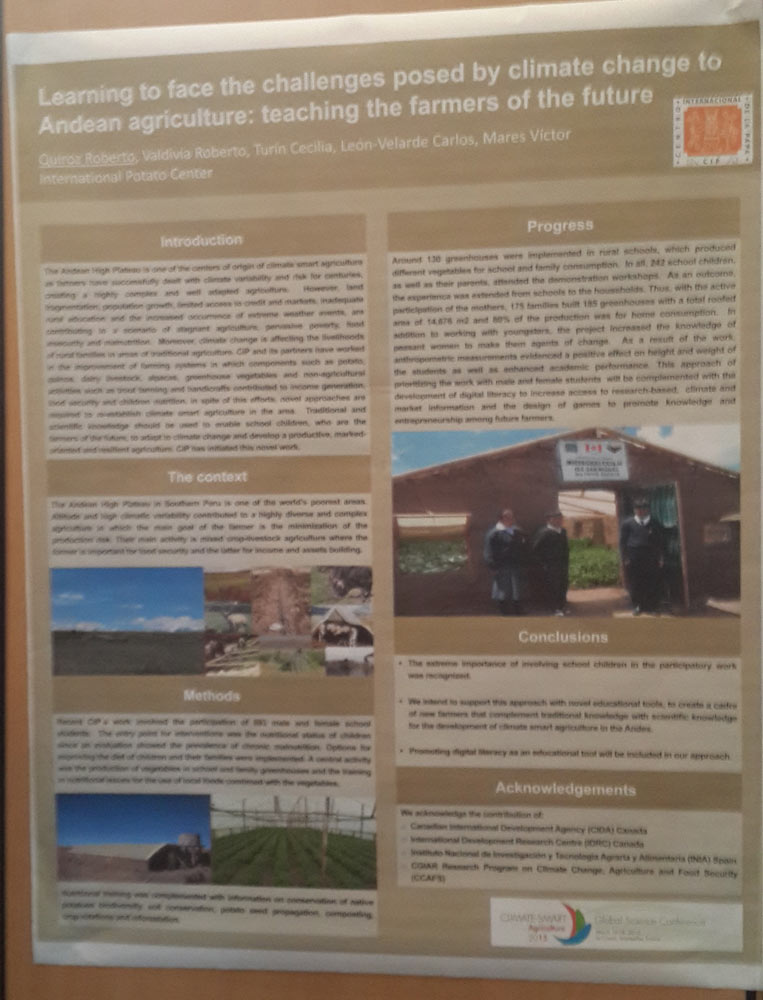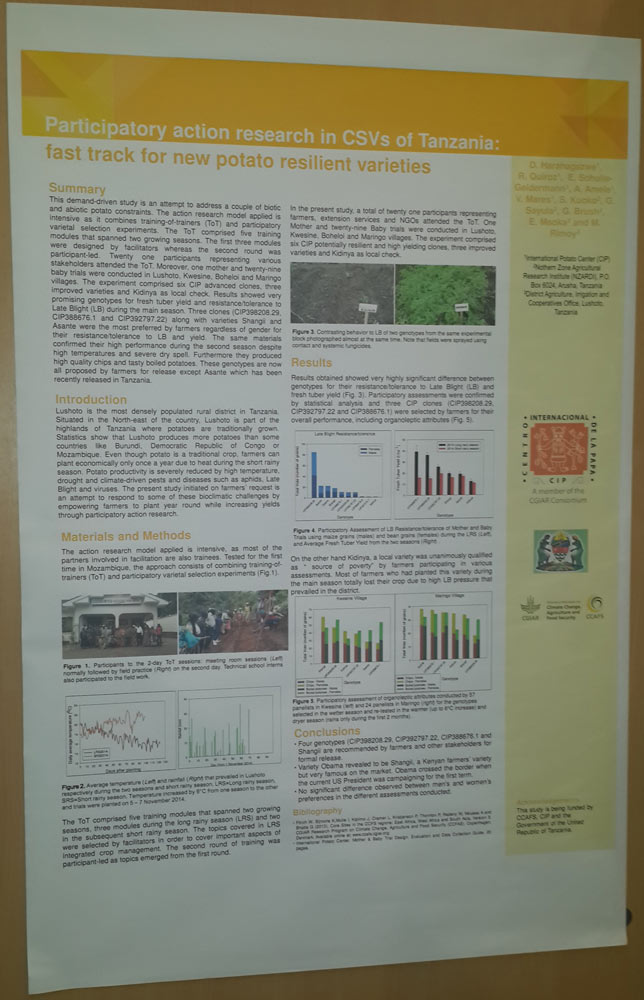The main purpose of this series of global science conferences is to widen the understanding of this now popular concept of Climate-Smart Agriculture (CSA) through its three pillars, namely Food security, Adaptation and Mitigation. Also, it is an opportunity for partakers to identify key priorities for action and design a roadmap for future research on CSA. It is worth mentioning that the 4th Conference will be hosted by The New Partnership for Africa’s Development (NEPAD), venue and date are yet to be communicated.
CIP was represented at this global event by three scientists (Roberto Quiroz, Cecilia Turin and Dieudonné Harahagazwe) from the Productions Systems and the Environment (PSE) Sub-Program who made an oral presentation and presented two posters. The following paragraphs highlight key messages shared by CIP scientists at the conference.
Cecilia Turin (see photo) made a talk titled “Implications of losing the complementariness of gender roles on CSA strategies in the Peruvian Altiplano”. The talk was based on a compilation and analysis of 20-year CIP databases from 40 communities. The study showed that men’s migration not only reduced the access to men’s labor but also has interrupted the provision of climate information which used to be men’s domain. On the other hand, climate change increases women’s stress and vulnerability that drive them to opt for less sustainable strategies in their farming practices.
The two posters titled “Learning to face the challenges posed by climate change to Andean agriculture: teaching the farmers of the future” and “Participatory action research in climate-smart villages of Tanzania: fast track for new potato resilient varieties” were presented by R. Quiroz and D. Harahagazwe, respectively. The first poster outlines the importance of involving school children, both boys and girls in participatory work since they also count among farmers and policy makers of the future. CIP’s work involved the participation of 693 school children trained on nutritional status while producing vegetables in schools and family greenhouses. The nutritional training was complemented with information on conservation of native potato biodiversity, soil conservation, potato seed propagation, composting, crop rotation and reforestation.

The story behind the second poster is a demand-driven study conducted in Tanzania as an attempt to address a couple of biotic and abiotic potato constraints. It is all about an intensive potato participatory action research comprising training-of-trainers, field experiments and transparent partnership. One of the key outcomes so far of this on-going study is that farmers recommended 4 genotypes for official released on the basis of their resilience to biotic and abiotic-induced constraints, and their high yielding ability and good organoleptic characteristics.

For more information please contact Dr. Roberto Quiroz at r.quiroz@cgiar.org.
